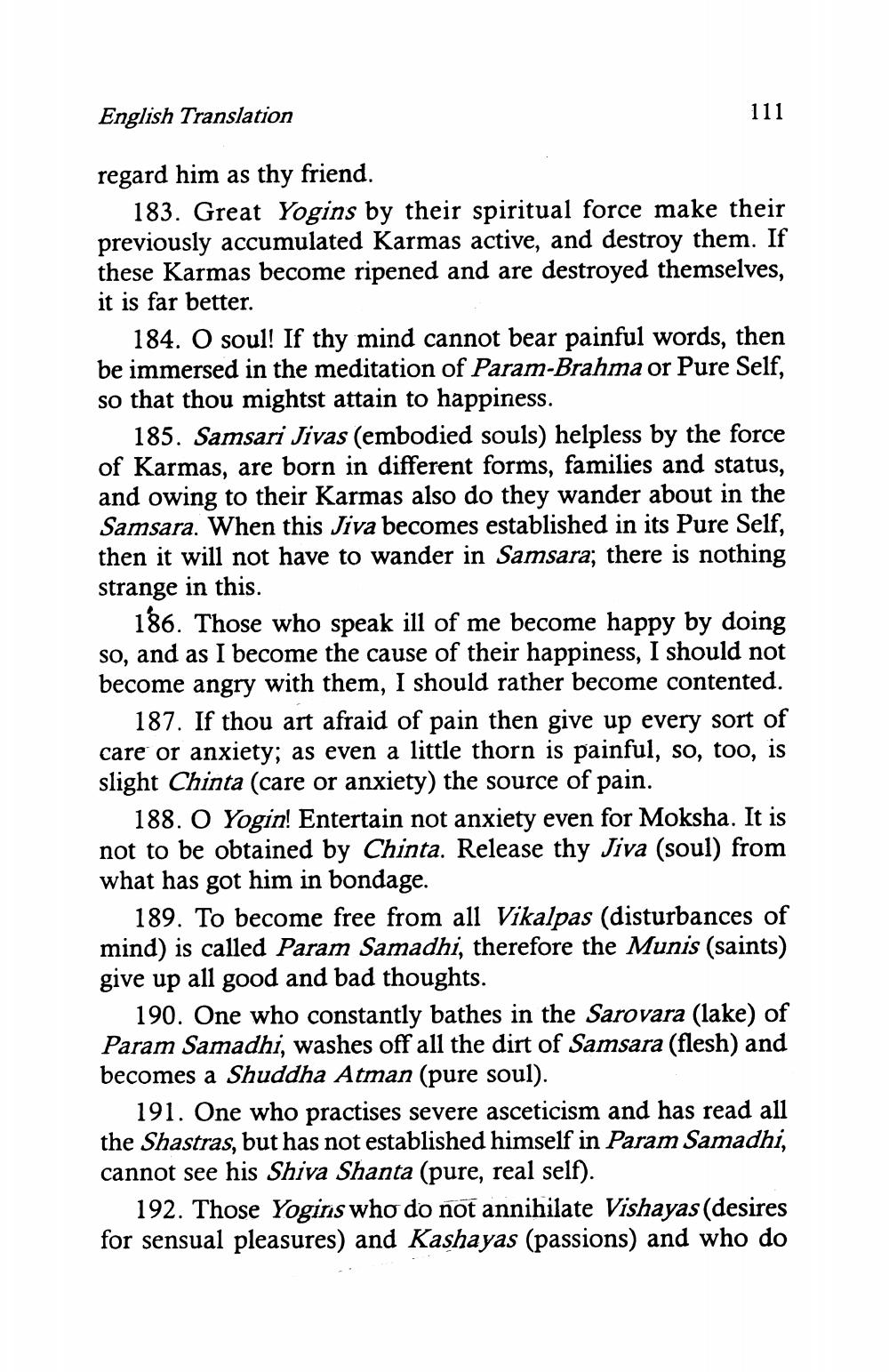________________
English Translation
111
regard him as thy friend.
183. Great Yogins by their spiritual force make their previously accumulated Karmas active, and destroy them. If these Karmas become ripened and are destroyed themselves, it is far better.
184. O soul! If thy mind cannot bear painful words, then be immersed in the meditation of Param-Brahma or Pure Self, so that thou mightst attain to happiness.
185. Samsari Jivas (embodied souls) helpless by the force of Karmas, are born in different forms, families and status, and owing to their Karmas also do they wander about in the Samsara. When this Jiva becomes established in its Pure Self, then it will not have to wander in Samsara; there is nothing strange in this.
186. Those who speak ill of me become happy by doing so, and as I become the cause of their happiness, I should not become angry with them, I should rather become contented.
187. If thou art afraid of pain then give up every sort of care or anxiety; as even a little thorn is painful, so, too, is slight Chinta (care or anxiety) the source of pain.
188. O Yogin! Entertain not anxiety even for Moksha. It is not to be obtained by Chinta. Release thy Jiva (soul) from what has got him in bondage.
189. To become free from all Vikalpas (disturbances of mind) is called Param Samadhi, therefore the Munis (saints) give up all good and bad thoughts.
190. One who constantly bathes in the Sarovara (lake) of Param Samadhi, washes off all the dirt of Samsara (flesh) and becomes a Shuddha Atman (pure soul).
191. One who practises severe asceticism and has read all the Shastras, but has not established himself in Param Samadhi, cannot see his Shiva Shanta (pure, real self).
192. Those Yogins who do not annihilate Vishayas (desires for sensual pleasures) and Kashayas (passions) and who do




